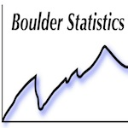- Subscribe to RSS Feed
- Mark Topic as New
- Mark Topic as Read
- Float this Topic for Current User
- Bookmark
- Subscribe
- Mute
- Printer Friendly Page
Discussions
Solve problems, and share tips and tricks with other JMP users.- JMP User Community
- :
- Discussions
- :
- Re: How to find the dataset attached to new data table
- Mark as New
- Bookmark
- Subscribe
- Mute
- Subscribe to RSS Feed
- Get Direct Link
- Report Inappropriate Content
How to find the dataset attached to new data table
Hi!
I recently had a bunch of datasets open in JMP and was running various PCA/Factor Analysis. In one of my analysis I turned the factor loadings into a data table. I saved the Factor loading table as its own file but I can't remember which of the original data sets the factor loadings belong too. Is there a way to tell which file the new factor loading table was created from? I think I may have screwed myself because I didn't save the source files I had opened.
Thanks!
- Mark as New
- Bookmark
- Subscribe
- Mute
- Subscribe to RSS Feed
- Get Direct Link
- Report Inappropriate Content
Re: How to find the dataset attached to new data table
In the upper left of the data table is a section with table scripts. Look to see if there is a “source” script. Right click on that script and select edit. This will open the script and you should be able to see the name of the source table.
- Mark as New
- Bookmark
- Subscribe
- Mute
- Subscribe to RSS Feed
- Get Direct Link
- Report Inappropriate Content
Re: How to find the dataset attached to new data table
This won't help after the fact, but I often keep track of tables similar to your loadings example by saving a script to recreate the table and any associated charts to the 'main' data table. Here is what that workflow might look like:
If you know you will open that graph frequently, the script can be modified slightly to close the data table when the graph closes.
Names default to here(1);
// table with loadings
dt = New Table( "Loadings",
Add Rows( 4 ),
New Table Variable( "Matrix", "Formatted Loading Matrix" ),
New Script(
"Loading Plot",
Graph Builder(
Size( 534, 456 ),
Show Control Panel( 0 ),
Variables( X( :Prin1 ), X( :Prin2, Position( 1 ) ), Y( :Row ) ),
Elements( Bar( X( 1 ), X( 2 ), Y, Legend( 4 ) ) )
)
),
New Column( "Row",
Character,
"Nominal",
Set Values( {"Petal length", "Petal width", "Sepal length", "Sepal width"} )
),
New Column( "Prin1",
Numeric,
"Continuous",
Format( "Best", 12 ),
Set Values(
[0.991555183419361, 0.964978960669249, 0.890168764861295,
-0.460142706447906]
)
),
New Column( "Prin2",
Numeric,
"Continuous",
Format( "Best", 12 ),
Set Values(
[0.0234151883791652, 0.0639998470437471, 0.360829888113024,
0.882716269162384]
)
),
New Column( "Prin3",
Numeric,
"Continuous",
Format( "Best", 12 ),
Set Values(
[0.0544469918737199, 0.242982654978454, -0.275657666777235,
0.0936198738183875]
)
),
New Column( "Prin4",
Numeric,
"Continuous",
Format( "Best", 12 ),
Set Values(
[0.115349782241962, -0.0753595012171306, -0.0376060188878041,
0.0177763068455174]
)
)
);
// Loading Graph
gb = Graph Builder(
Size( 534, 456 ),
Show Control Panel( 0 ),
Variables( X( :Prin1 ), X( :Prin2, Position( 1 ) ), Y( :Row ) ),
Elements( Bar( X( 1 ), X( 2 ), Y, Legend( 4 ) ) )
) << On Close(try( dt << Close Window) );Recommended Articles
- © 2026 JMP Statistical Discovery LLC. All Rights Reserved.
- Terms of Use
- Privacy Statement
- Contact Us

